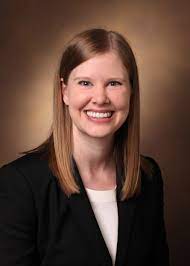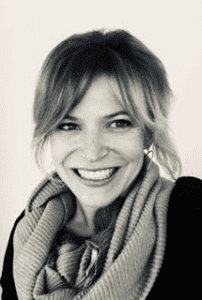SGO Palliative Care Recaps: Medical Aid in Dying | Alaina Brown, MD, MPH; Amer Karam, MD; & Susan Wilhoit, MD
The SGO Palliative Care Committee is excited to present a series of recaps from the 2023 Annual Meeting on Women’s Cancer education sessions. The blogs will include essential summaries and links to the educational content now available via SGO ConnectEd. The first blog below features a recap of a session on Medical Aid in Dying, presented by Drs. Alaina Brown, Amer Karam, and Susan Wilhoit.
Stay tuned for additional education on this topic in part two of the palliative care educational modules series coming soon. Part one of the series is available now on ConnectEd with five, 10-15-minute symptom management modules that can be completed with or without CME credit.
Session Recap: Medical-Aid-in-Dying

Alaina Brown, MD, MPH
Medical Aid-in-Dying (“MAID”) is a medical practice that legally allows a terminally ill, mentally capable adult with a prognosis of six months or less to request a prescription for medication that they can self-administer to end their life on their own terms. MAID is one of the options patients have when they face a terminal illness. Other options include foregoing disease-directed treatments, hospice enrollment, and the voluntary stopping of eating and drinking (“VSED”). All of the approaches can be offered concurrently, depending on the patient’s wishes.
MAID is legal in ten states and the District of Columbia, representing 20% of the U.S. population. Every jurisdiction that allows MAID has their own regulations. There are four criteria that are universal across the United States. Regardless of where the patient lives within the U.S., they must be: 1) an adult 18 years or older; 2) terminally ill with a prognosis of six months or less; 3) able to demonstrate the capacity to make complex medical decisions; and 4) able to self-administer the MAID regimen. Most jurisdictions require that the patient be a resident of the jurisdiction where they are pursuing MAID. Oregon and Vermont are the exceptions – Oregon does not enforce their residency requirement and in 2023, Vermont removed the residency requirement from their MAID legislation. Common to all of the MAID regulations are verbal and written requests that the patient must make stating their desire for aid-in-dying. The nuances of these requests vary among the jurisdictions. Another common regulation that varies from state to state is the mandatory waiting period between the patient’s requests and the writing of the prescription.

Amer Karam, MD
The clinicians involved in a patient’s MAID process include the attending physician* who assesses the patient’s prognosis and capacity and who ultimately writes the prescription; the consulting physician* who confirms the patient’s prognosis and capacity; a compounding pharmacist who prepares the multidrug regimen. If either physician* has concerns about the patient’s capacity or feels that mental illness is complicating their case, they are to refer the patient to a behavioral health specialist. In Hawaii, all individuals seeking MAID are required to undergo a behavioral health evaluation.
Clinical guidelines first published in the Journal of Palliative Medicine in 2016 are currently being revised to reflect the latest advancements in MAID. Data collected and analyzed by the American Clinicians Academy on Medical Aid in Dying offer a growing body of evidence guiding this evolving practice. The recommended medications are a combination of digoxin 100mg, diazepam 1g, morphine 15g, amitriptyline 8g, and phenobarbital 5g. The universal requirement to self-administer is limited to the GI tract and the potential routes include: oral, nasogastric tube, PEG tube, or rectal catheter. After self-administering the regimen, the average time to loss of consciousness is ten minutes; the average time to death is one hour. Patients and their loved ones should be counseled that these times can vary from person-to-person so that they can be better prepared for a meaningful experience.
Death certificates for individuals who utilized MAID reflect their underlying terminal illness as their cause of death. The manner of death is documented as “natural.” Medical aid-in-dying is distinct from suicide and euthanasia. A MAID-eligible individual has a terminal, irreversible illness for which there is no cure and from which they are expected to die within six months. MAID patients often cite preservation of dignity as their motivation to pursue MAID. On the other hand, individuals who attempt or complete suicide often suffer from depression for which multiple treatment options exist and their life-expectancy exceeds six months. In the United States, the universal requirement for MAID patients to self-administer fundamentally distinguishes it from euthanasia. Euthanasia, or the administration of a lethal medication by one individual into another, is illegal throughout the U.S. As medical aid-in-dying becomes more accessible, clinicians are encouraged to use the most appropriate language to accurately describe this end-of-life option.

Susan Wilhoit, MD
Patients who seek medical aid-in-dying are encouraged to enroll in hospice. Hospice remains the most comprehensive way to provide expert symptom management, psychosocial and spiritual support, and bereavement to individuals who are at the end of their lives as well as their families.
*Physician is used to describe the medical providers involved in the patient’s case. Some jurisdictions allow advanced practice providers (PAs and/or NPs) to serve in the attending and/or consulting roles.
Clinician Resources:
https://www.compassionandchoices.org/d2d
https://www.compassionandchoices.org/clinician-resources
Aliana Brown, MD, MPH, is a gynecologic oncologist and associate professor at Vanderbilt University Medical Center in Nashville, TN.
Amer Karam, MD, is a gynecologic oncologist and clinical professor at Stanford School of Medicine in Palo Alto, CA.
Susan Wilhoit, MD, is primary care physician, palliative medicine consultant and hospice clinician in Denver, CO.